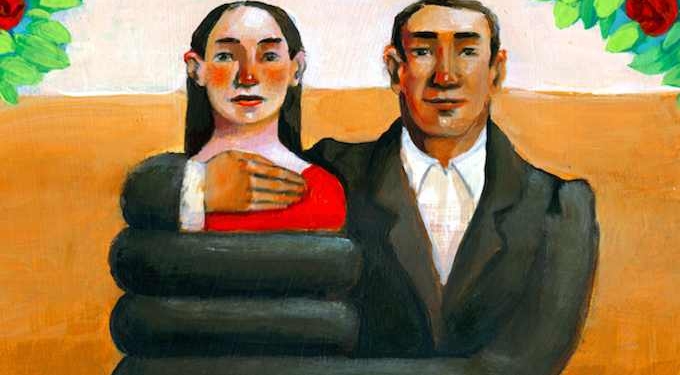
Halema Khan | Tiny Buddha
“Alone doesn’t always mean lonely. Relationship doesn’t always mean happy. Being alone will never cause as much loneliness as being in the wrong relationship.” ~Unknown
I don’t know if it’s the conditioning of Disney movies that makes every young girl dream of finding her Prince Charming, but that was my experience. My prince entered my life just like that, saving me from my boredom and taking me on a roller coaster of excitement. He assured me that our love was going to last forever, and the naivety of being sixteen made me believe him.
It didn’t take long for his true colors to emerge; sadly, it took me longer to see them.
I thought the control was over-protectiveness. I thought he cared when he told me what to wear, who I could associate with, and where I could go. The Neanderthal behavior must have touched something primitive in me, and I was overwhelmed with the urge to please.
Quickly, I went from princess to property. He shouted at me, berated me, and mentally tortured me. And I thought I was being loved.
To anyone who has never been in this situation, the words “run, Forest, run” might come to mind. However, we say this from an adult perspective, older and wiser. When you’ve been brainwashed since you were sixteen, it takes more than a quote from a movie to see sense.
Everything became an argument. Every argument taught me to walk on eggshells. If I didn’t conform, he would ignore me. If I refused to listen, he would isolate me. If I cried, he would scream at me. If I had no emotion, he would play the victim.
I thought I could make him better. I thought he would receive the love from me that he was lacking elsewhere and that this would make him change.
I thought wrong.
Nearly fifteen years later, I am the one who holds a lifetime worth of memories that I can’t forget, and I’ve had to recondition myself into believing that this is not my fault. No amount of “what ifs” can change a person’s innate morality. Mentally and emotionally healthy people do not try to make others feel unworthy of love and dress it up to be love.
If you asked me to define love, I would tell you it is the ability to be unselfish. To be willing to put others first and sacrifice your needs and desires at times. More importantly, love needs to be reciprocated.
But when I was with my ex, I felt as though I had to work hard to receive love. I needed to shut myself, my thoughts, and my feelings down and simply become a doormat, or else he’d emotionally abandon me.
So, I tried that. I became a “yes” woman. I lost myself in the world of conformity, and it still wasn’t enough. He accused me of being unfeeling, emotionless, and devoid of passion. So, I changed again. I tried to become more like him. I would scream and shout to try and gain control, and then he called me manipulative and psychotic.
I tried to combine the two. I tried to be religious. I tried to be a party-goer. I tried to be dominant. I tried to be submissive.
Nothing worked.
I cried, begged, and pleaded to be treated like a human. I asked for compassion but received cruelty. I asked for love and had to be satisfied with lust. I wanted hope but felt hopeless. Until I realized that I was asking for something that he was unable to give me.
A narcissist is incapable of recognizing the needs of another. He/she cannot fathom that people have emotions, unless they are used as a method of control. They thrive on the idea that you believe in them and, rather than granting you equality, they manipulate you into believing that the scraps they throw you are the only ones you deserve.
He told me countless times that he loved me, so why have I spent the last decade and a half repeatedly asking the same question, “Do you really love me?”
If he loved me, how could he not understand my pain? How could he be okay with knowing I felt so low? How could he constantly betray me? Why couldn’t he make the same sacrifices as me? Why couldn’t he just be the person I first fell in love with?















